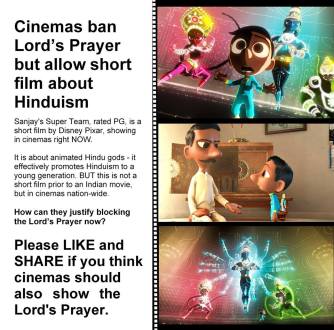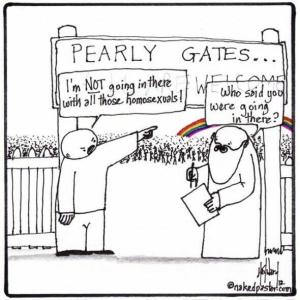People like justice when they feel they are entitled to it, but when those who have wronged them are not punished appropriately, they feel wronged themselves. Viewpoints on judgement, justice and mercy seem to change a lot when we are the ones who are guilty. We suddenly like the idea of mercy, but are averted by the ideas of justice and punishment. When we talk about God, according to the Christian faith, God will punish the guilty. Most people do not have a problem with that when it is aimed at other people. We seem to get very angry though, at the thought that God might judge us and find us guilty. Some Christians react this way. As Adam Barr put it; “A God who disciplines does not accord with many people’s theology. We would prefer God cajole us or, better yet, ignore our sin“[1].
Being a child growing up I used to do many things wrong and being grounded by my parents and having to do extra chores used to be the penalty for that; not being allowed out to play just sucks! If God does still punish us, what does his equivalent of being grounded and getting extra chores look like? Or is something else going on with the way God operates?
There are some that take the view that God does not punish us at all, that it was all taken care of on the cross. Does this mean that God now overlooks all the evil committed and we are all saved when the new heaven and earth are put in place? By no means, and Jesus was quite clear when he spoke to his disciples;
Now there were some present at that time who told Jesus about the Galileans whose blood Pilate had mixed with their sacrifices. Jesus answered, “Do you think that these Galileans were worse sinners than all the other Galileans because they suffered this way? I tell you, no! But unless you repent, you too will all perish. Or those eighteen who died when the tower in Siloam fell on them—do you think they were more guilty than all the others living in Jerusalem? I tell you, no! But unless you repent, you too will all perish.” (Luke 13:1-5)
Jesus is very clear that unless we repent to God, we will perish, but he does not say exactly when that will be. Jesus is talking about those who do not repent, so if we do repent, does that mean we are free to do whatever we want?
Freedom is a very odd thing because real freedom is not what many think it is. Real freedom is not being able to do whatever you want, whenever you want and (in some cases) whoever you want. That is not freedom, that is anarchy and when anarchy breaks out, you actually have a loss of freedom. We, as Christians, are not suddenly given carte blanche to do what we want, we have been given 2 very specific commandments; Love the Lord your God with all your heart and with all your soul and with all your mind and love your neighbor as yourself. (Matthew 22:36-39) Now some very atrocious acts have been carried out under the disguise of love and they are rightly shown for what they are; abuse. Rachel Held Evans is doing a fantastic series on this which I highly recommend reading [2].
Coming back to the view that God does not and wil not punish us at all, another problem arises; God cannot ignore our sin and be a God of justice. Mercy always comes at the expense of justice – a punishment is due but mercy is extended instead. The cross is seen as God’s way of extending his mercy through justice by taking the punishment for us [3]. There is a story that’s often told to help illustrate this;
2 men were friends were friends since childhood but ended up in very different circumstances; 1 becomes a judge, the other ends up as a criminal. Years later, the friend who became a criminal is in court facing charges and the judge is his childhood friend. The judge wants to let his friend off but he must enforce the law. The punishment for the crime is a fine. The judge fines the man then takes off his robes and attire, steps down to his friend and pays the fine for him.
The whole concept of justice is here; an act has been committed that has broken the law, and someone has to be punished for that act in order for there to be justice. Derek Flood has written a book called ‘Healing the Gospel‘ [4] which challenges this view about what happened on the cross, but I will come back to this later.
Some have cited events like the tsunami in Japan and the earthquake in Haitai as examples of God’s punishment on a sinful world. They take the stance that God will punish us for our wrong doings here and now whilst we are still on this earth. The Old Testament is filled with examples of God sending “natural disasters” to punish various groups of people, and so from this perspective, this makes sense and has Biblical precedent. They did wrong and God sent punishment down on them. It makes sense, but there are 2 stories in the Old Testament that call this approach into question.
In Genesis 18, God wants to see if the reports of Sodom are accurate but Abraham starts asking if some righteous people are in Sodom, will God spare the city. Abraham starts at 50 and works his way down to 10, and each time God says he will spare Sodom. To say the natural disasters are Gods punishment is effectively saying everyone in the affected area were sinners beyond saving and Jesus in Luke 13 is quite clear that no sin is worse than others. The other story from the Old Testament that deals with God sending punishments is the Book of Job. Job experiences huge tragedy in his life, but this was not punishment for things that he had done. Things that happen to us are not necessarily as a result of anything we have committed. The whole book is essentially Job debating with his friends whether what’s happening is a result of Job doing something wrong and God punishing him. Job’s friends were keen to try and convince him that these incidences were indeed punishments for a sinful life, but Job was having none of it. In the end God steps in and is not pleased with Job’s friends. God is unhappy that Job’s friends were telling lies about him, about Job being punished for something he had done.
Citing biblical precedence is not always the move. The disciples once asked if they should call down fire from heaven because Elijah did and Jesus rebuked them for it (Luke 9:52-56) Coming back to Luke 13, Jesus is quite clear that without repentance, everyone will perish, but Jesus does not say when. If God loves the world so much that He gave his Son, why would He deliberately inflict pain on it? I just do not see how we can talk about God comforting those affected if He was the one that deliberately sent the disaster. This applies to many issues where people suffer, not just natural disasters. So if God does not punish us whilst on this earth but does not simply let things go un-noticed, what does that leave us? For that, we need to take a look at the cross.
In the course of writing this, I was listening to Derek Flood about his book Healing the Gospel. In the interview [5] , he talked about penal substitution and atonement. Shortly after, I found an article by Jeremy Myers looking at a similar subject. In it he wrote;
God is not an angry, wrathful, bloodthirsty being who wants to torture and kill people when they disobey Him, but Jesus came along and convinced God to pour out this wrath on Himself instead of upon us.
Was there a substitution that took place? Absolutely. But it was not us for Jesus; it was rather our sin for His righteousness. He took our sin, and in His own body, on the cross, condemned sin, destroyed death, and rose victoriously from the grave, because of His—and God’s—great love for us. [6]
The cross is not the end, it was a huge step forwards to bringing in the new heavens and the new earth (Revelation 21:1-3) and there is a wider discussion about what happens when we die. If sin is the root of the problem, then it makes sense that Jesus took our sin and destroyed it, but what is sin? Many see sin as an act and that means punishment and discipline, punishment that Jesus took for us. But we are still left with a God who needs to punish someone. So what if sin is a disease? Most of Jesus’ ministry was about healing the sick. He gave new commandments, but it is not a case of “if you do not follow these, I will punish you”. Derek Flood gave a brilliant analogy:
“For years a doctor tells one of his patients to quit smoking. Every time he sees him he is still smoking. One day the doctor has to tell the patient that he has lung cancer. The doctor does not criticize the patient but sets to work helping the man to either cure him or comfort him”
God wants to restore us, He does not want anyone to perish, as 2 Peter 3:9 says. There is still much pain in the world though. Has God stopped working in our lives since the cross? I would like to say that He has not. Many Christians have testimonies about God restoring and healing them using their own experiences as evidence. C.S Lewis once said;
“Experience: that most brutal of teachers. But you learn, my God do you learn.” [7]
Some people have to learn very harsh lessons from the choices they make and the choices made by others, but if Jesus taught us anything, it is that we are not to focus on ourselves, but on others. Life itself is hard enough and God does not want to add to it. Essentially, life has become God’s method of discipline, but I need to be clear by what I mean; I am not saying God allows things to happen to teach us a lesson – parents don’t always stop their children from doing anything remotely dangerous, they understand they have to learn for themselves, but they do not deliberately put their child in harms way to force them to learn. God does not send hurt on us to force us to learn, life is going to send its share of hurt, but God allows it because He designed us to learn and adapt. As we adapt, we become more disciplined so God is not disciplining, but installing discipline through how life is. When we are going through pain, God is there to comfort and support us.
I realize that I have not gone into what Hell is; is it a real place of fire or just somewhere where God is not? Do we go straight there (if we’re bound for there) or do we wait in a “lay-by” until the final resurrection? [8] Whatever happens after this life, how we view the cross and punishment directly influences how we view God. This and the subjects touched on above are so vast and complex that they can not be done justice in one blog, and certainly not by me, a lot of the concepts that are raised go over my head. As a Christian though, I still have to face these questions and God guides us at the level we can handle, and learning about God is always fun and rewarding.
References:
[1] Taken from RZIM Canada (https://twitter.com/rzimcanada)
[2] http://rachelheldevans.com/blog/abuse-mary-demuth
[3] Michael Ramsden, God of Love God of Judgement, [Available at http://www.youtube.com/watch?v=IYUCvHoXuH4] (last viewed 8th April 2013)
[4] Flood, Derek (2012) Healing the Gospel: A Radical Vision for Grace, Justice, and the Cross, Cascade Books
[5] http://www.beyondtheboxpodcast.com/2012/10/healing-the-gospel-with-derek-flood/
[6] http://www.tillhecomes.org/substitutionary-atonement/
[7] http://www.brainyquote.com/quotes/quotes/c/cslewis103466.html
[8] N.T. Wright, Rethinking life after death [Available at http://www.youtube.com/watch?v=rZC6tbgpsl4] (last viewed 12th April 2013)
Originally posted 13th April 2013



You must be logged in to post a comment.